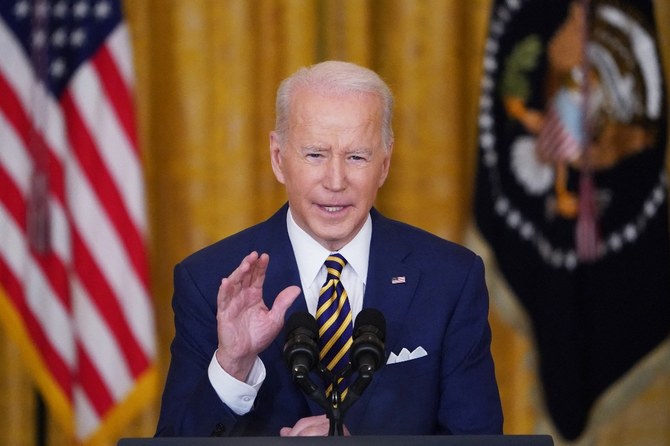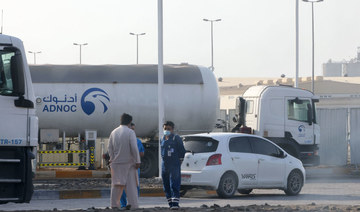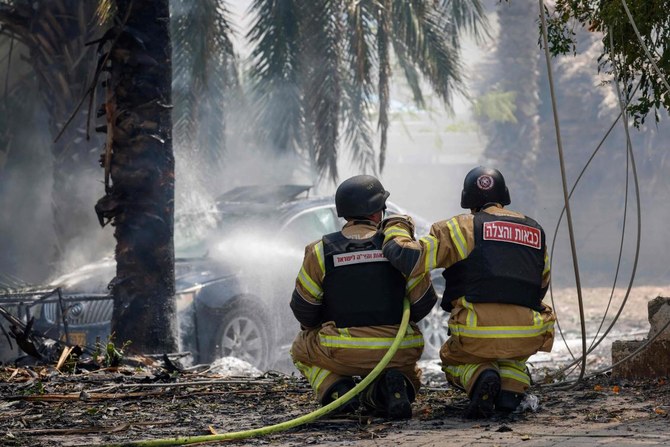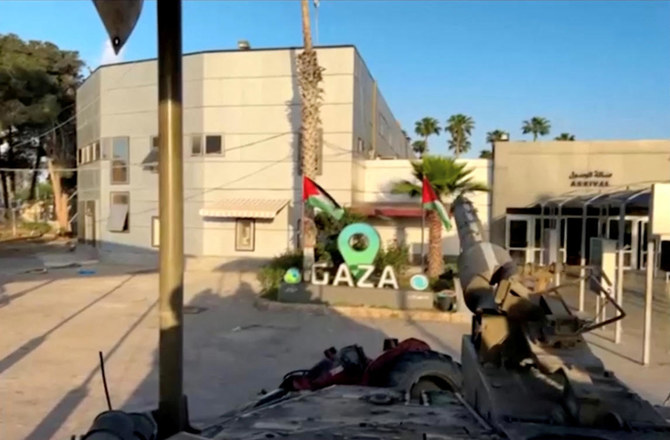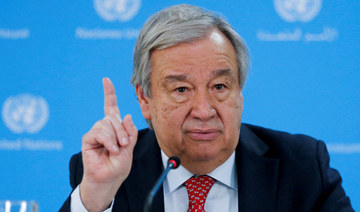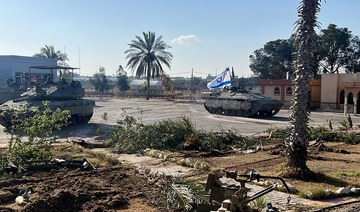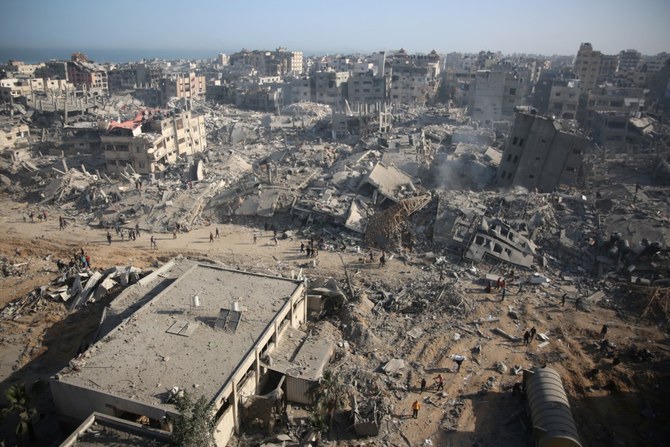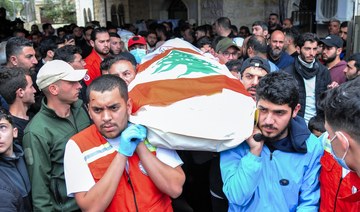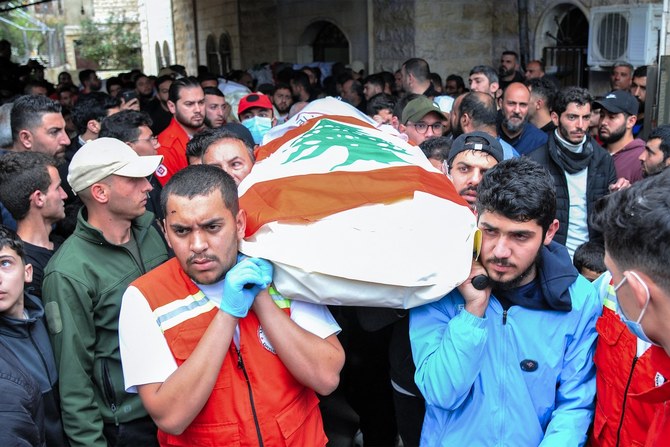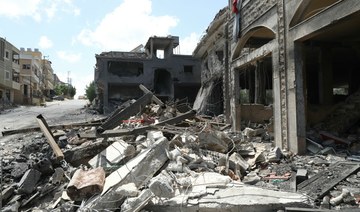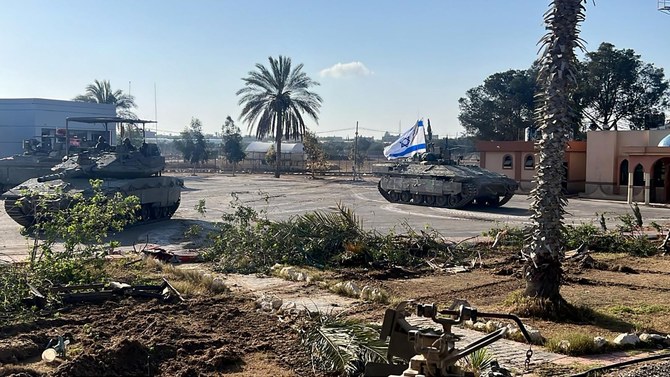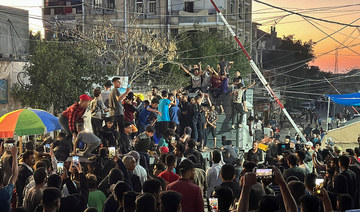CHICAGO: US President Joe Biden said on Wednesday that he is considering re-designating Yemen’s Houthi militia as an international terrorist organization days after the Iran-backed group killed three people in a drone strike in the UAE.
Marking his first full year in office with a two-hour press conference, Biden focused on his domestic efforts and the fight against COVID-19, but also touched on foreign policy issues, mostly addressing the threat of a Russian invasion of Ukraine, and also taking questions on Iran and Yemen.
Weeks after taking office in 2021, Biden officially delisted the Houthi militia as a “foreign terrorist organization,” a designation put in place by his predecessor, Donald Trump.
The US leader has also worked to bring Iran back to the negotiating table over its nuclear weapons program.
Asked if he would redesignate the Houthis as a terrorist group, Biden replied: “It’s under consideration.”
Houthi rebels claimed credit for a cross-border drone strike on Monday that killed three migrant workers in the UAE.
Biden’s Special Envoy to Yemen, Tim Lenderking, was sent to the Gulf and London on Wednesday “to reinvigorate peace efforts in coordination with the UN, senior regional government officials and other international partners,” according to a statement from US State Department spokesman Ned Price.
“The special envoy and his team will press the parties to de-escalate militarily and participate fully in an inclusive UN-led peace process,” Price said.
Lenderking will also address “the urgent need to mitigate the dire humanitarian and economic crises facing Yemenis.”
Opinion
This section contains relevant reference points, placed in (Opinion field)
Price quoted UN data released last week that shows 16 million people in Yemen need aid totaling about $3.9 billion.
“It is imperative that donors, especially regional donors, provide additional funding, and that all parties to the conflict take steps to improve humanitarian access and address Yemen’s fuel crisis,” the UN said.
Biden was also asked if he was making progress with Iran in efforts to force the regime to adhere to the 2015 Joint Comprehensive Plan of Action, or nuclear deal.
“It is not time to give up. There is some progress to be made,” he replied.
However, the lengthy press conference was clearly intended to highlight Biden’s achievements since being sworn in as president one year ago on Jan. 20, 2021.
Political analyst Dalia Al-Aqidi said Biden’s press conference sounded more like a campaign speech, and appeared to be orchestrated to allow him to address his political talking points as Democrats and Republicans prepare for a midterm election battle for control for the House and Senate this year.
“Basically, we just saw the first draft of his presidential campaign pitch, and I expect that America will hear the same speech over and over while the country is suffering from a stalling economy and colossal inflation,” said Al-Aqidi, a senior fellow at the Center for Security Policy.
She criticized Biden’s failure to address terrorist violence that resurfaced in Colleyville, Texas, this week when four members of a synagogue were held hostage until the gunman was killed by police.
The US leader confirmed he plans to run for re-election and will keep Kamala Harris as his vice presidential running mate. He also defended his role in the sudden US withdrawal from Afghanistan.
Biden initially took questions from 11 reporters, who were on a list he held at the podium. Questions focused on the economy, mounting tensions with Russia over Ukraine, and growing polarization in the US. He acknowledged the need to get out of the White House and “speak directly” to the American people.
Halfway through the press conference, Biden accepted questions from other reporters who were sometimes openly critical of his performance.
The US leader insisted he has made significant progress easing the economic burden caused by the global pandemic, including creating 6 million jobs, reducing unemployment to 3.9 percent and getting 210 million Americans fully vaccinated.
Biden also claimed he is working to bring the country together, and blamed the failure to bridge the nation’s growing divide on Trump, citing private discussions he has had with several Republican senators who say they fear Trump will undermine their re-election if they support Biden’s agenda.




